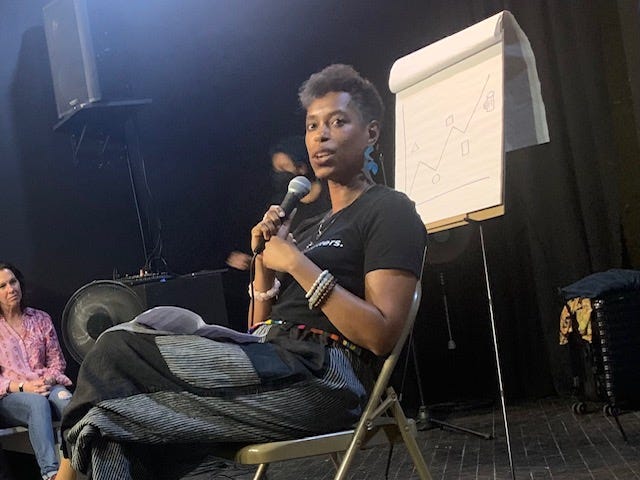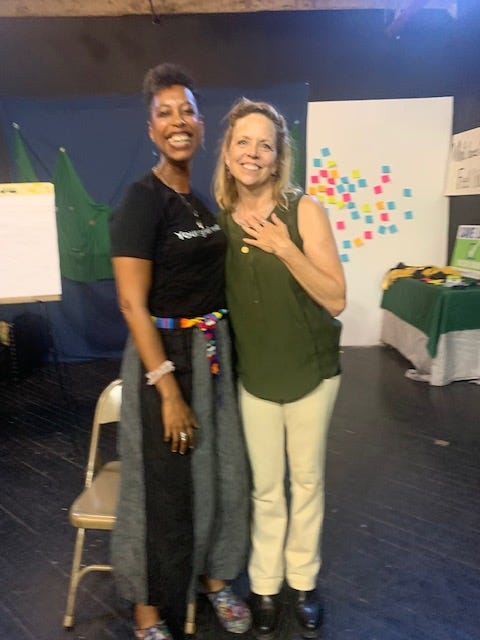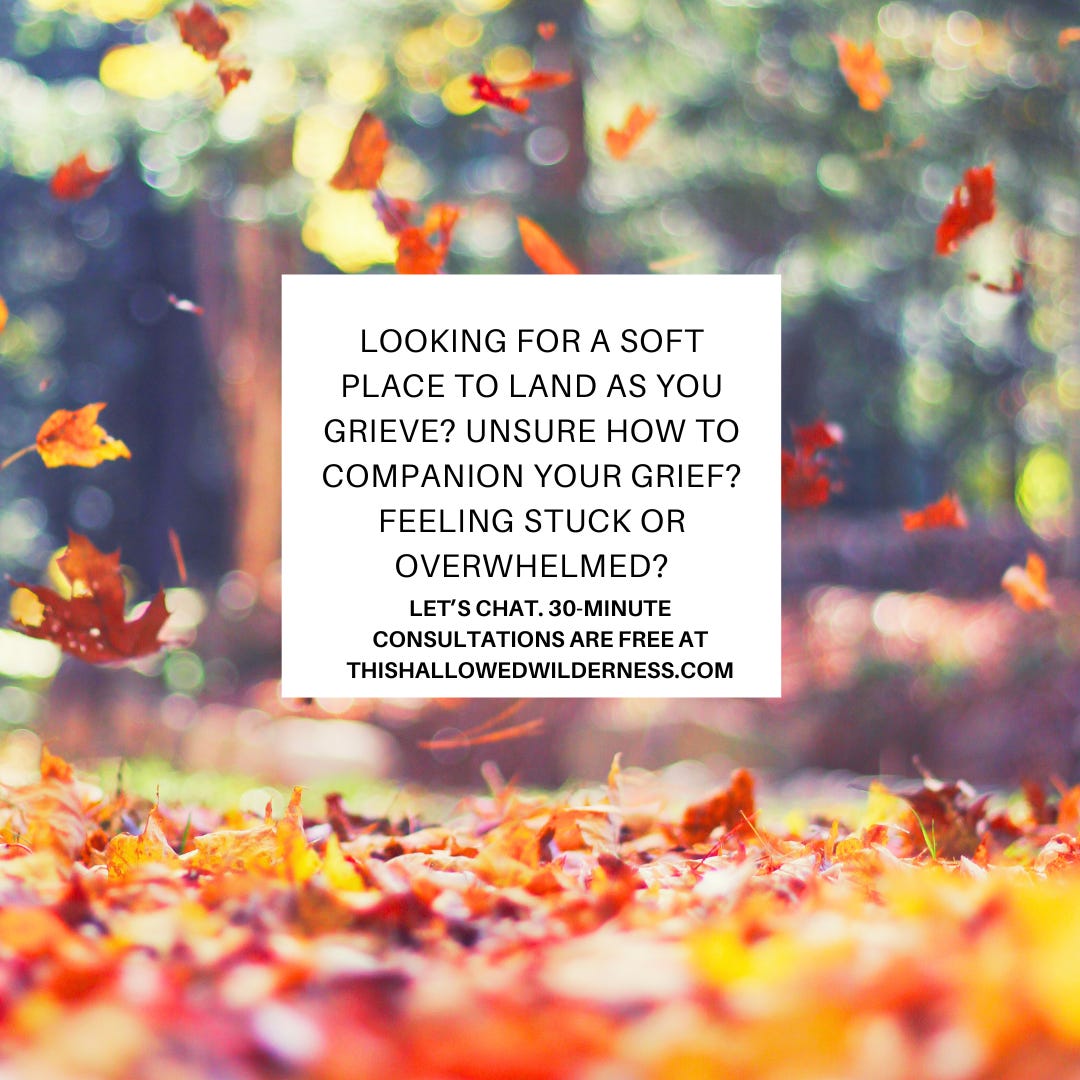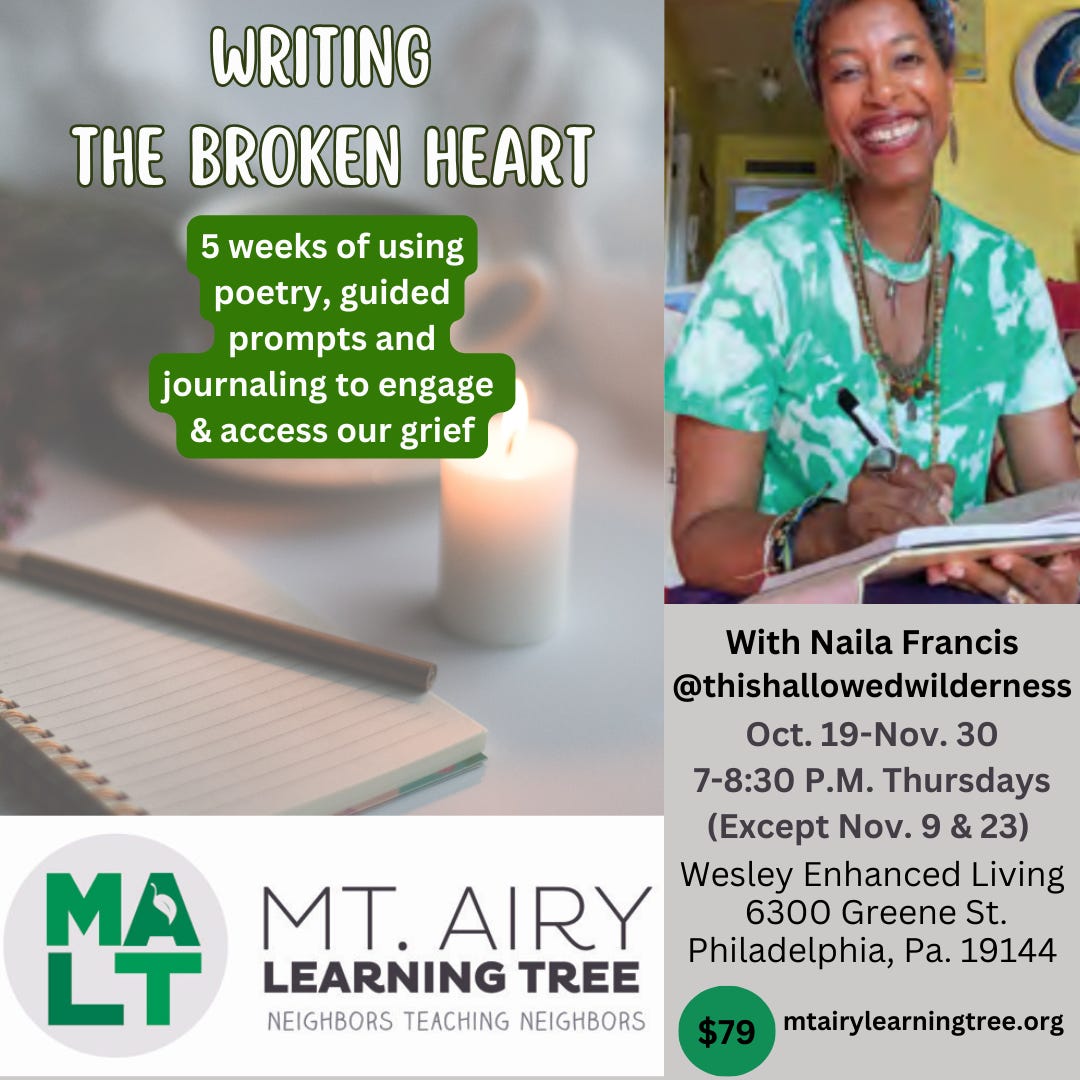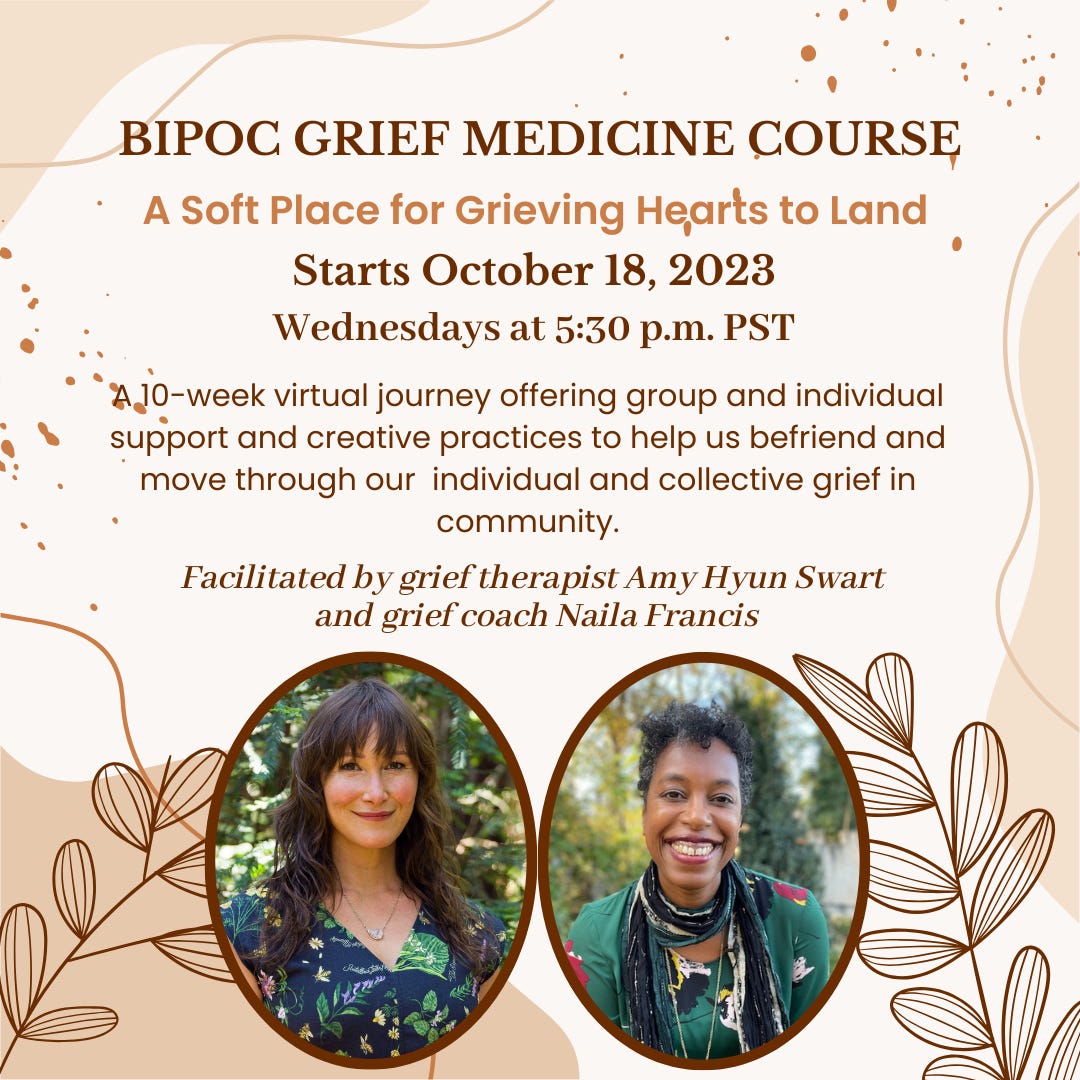There is no winning at grief
Its demands don't align with a culture high on achievement and triumph.
This week, as the Philadelphia Fringe Festival continues to spill its art-making-and-sharing smorgasbord in venues across my city, I was invited by theater artist and writer Michelle Pauls to lead a talkback after her play “It’s Complicated…This Gift of Life.” An immersive, interactive exploration of one woman’s journey to make sense of her husband’s sudden death and the impact of his organ donation, as well as to reconcile their ruptured relationship prior to his death, the play is a deeply honest, moving and funny look at grief, death, mental illness and the struggle to be present to those experiences in a culture that turns away from them.
As a grief coach and death midwife, I was asked to talk about what I do and how the play’s threads intersect with my work. I was struck by so much in Michelle’s powerfully written piece, but as I sit here on the cusp of the Autumnal Equinox, and without giving too much away ( there are still two chances to see the play on Sept. 22 and 23), I keep thinking of our cultural obsession with the hero’s journey. With tales of triumph and overcoming. With making meaning from the circumstances of our lives that lifts up the positive, turns us toward the light.
In the play, the main character is trying to honor the gift that organ donation is while also expressing all that feels wild and broken and lost within her because her husband died to make this gift possible. She is at a convention bringing together donor families, living donors and recipients. And her grief is palpable, along with her despair and desperate longing to find her way through the dark, uncertain terrain she has to navigate. But whenever the messiness of her emotions, the raw seeking of her questions breaks the surface, she is steered toward focusing on the life her husband saved — the heroism in all the lives saved no matter how tragic the death that has pumped new hope and possibility into someone else.
“It’s Complicated” doesn’t question the marvel and necessity of organ donation (I am a registered donor myself). But it does take aim at our tendency to avoid and hide from our grief.
Part of this grief phobia, I believe, is rooted in our interminable hunger for silver linings, happy endings, big wins, rallies to victory and accomplishments we can celebrate.
Grief isn’t part of that narrative. We cannot accomplish or win at grief. It is not something to resolve or overcome. Encouraging grievers to find the blessing, the good, or even the lesson, in the midst of seismic upheaval and pain is both a disservice and insult to the shattered heart. Whatever meaning there is to make, whatever growth or learning there might be to embrace, whatever medicine waits to pour itself into the skins of an emerging life can only be found in being present and faithful to our grief.
In cultivating the capacity to stay with the hard, the uncomfortable, the awkward, the searing and mysterious. In being willing to trust the path of descent instead of forcing ourselves to rise up from the wreckage of the world we once knew. In slowing down as we cross the threshold that loss invites us to instead of galloping forward to some elusive finish line or trying to skirt this liminal space.
Here, in these depths, we are asked to practice surrender, to let go of the need to know, to control. Coming undone, being unmoored, letting ourselves be scrambled by all that is changed and changing within and around us aren’t signs of weakness or reasons for shame. They are inherent to this territory, markers of an alchemical transformation that wants our curiosity and attentive care. Grief is supposed to alter us, even if our becoming remains a murky and meandering path for longer than we think we can bear it. There is no going back to normal. No ending to what we will always carry.
But perhaps there is an opening up to softness. A ripening into self-compassion. A settling into a more restful rhythm. A reaching out to weave ourselves into spaces of nurturing connection and support. Perhaps here, in the shadows, we allow a breaking down of old beliefs, old ways of being and relating that have kept us from honoring our true needs and desires, from tending some essence of who we are.
To stay here, to keep turning toward our grief instead of toward our cultural norms of performance, production and accumulation, of conquering what we fear, may not be the hero’s journey. But it is a beautifully human story.
As autumn arrives this weekend, and summer’s verdancy gives way to decay, may we, too, drop close to the ground of our grief, embrace the energy of shedding and letting go, of bringing warmth to what feels dark and cold. May we gather patience and trust to sit in this in-between, longing not for the light at the edge of all we cannot know but for channels to let our grief flow through us — in art, in movement, in music, in kinship with nature, in full, deep breaths, in any practice that calls to us as nourishment, release, anchoring.
That allows our grief to be witnessed, unruly companion that it is, from a gentle, welcoming place.
Let’s journey together here.
JOIN ME AND THE DINNER PARTY FOR GRIEF CAMP
The fall season can be tender and challenging for grievers as we head into the holidays. Attempting to navigate this fraught time of year can also be isolating for those who’ve experienced significant loss. The Dinner Party Grief Camp offers six days of restorative workshops to provide grievers 18+ with the space to be seen in their humanness and to cultivate lasting connections through their experience of loss. This week of virtual workshops — including my writing workshop, “It’s Complicated,” about grieving challenging relationships, on October 5 — will be followed by ongoing activities and resources to support you through the holiday season.
Save 40 percent off tickets with the code NAILA40.
A GRIEF CARESHOP FOR THE CHANGE OF SEASONS
Gift yourself a mindful pause in the midst of life’s busyness — to acknowledge and honor your losses with support, guidance, and the balm of community connection.
In this grief careshop, we'll create room to listen to our hearts through guided visualization, writing, ritual, and group sharing.
Find out more here.
5 WEEKS OF POEMS & PROMPTS TO TEND YOUR GRIEF
Many of us carry our grief privately, keeping the words, memories and feelings we long to express locked up inside. Yet our grief needs a practice that allows for its movement through our bodies. In this workshop offered through Mt. Airy Learning Tree, we'll turn to writing to express our grief. Sessions will include grounding meditations and visualizations, shared poems about grief to help us access our emotions around our own losses, and invitations to write in response to guided prompts. We’ll explore poems about connecting with our loved ones, listening to our bodies, caring for and navigating our grief and grieving what breaks our heart in the world.
Classes will meet from 7 to 8:30 p.m. at Wesley Enhanced Living, 6300 Greene St., Philadelphia, on the following Thursdays: Oct. 19 and 26, Nov. 2, 16 and 30.
Investment is $79. Register here.
BIPOC GRIEF SUPPORT RETURNS
Receive support and guidance to tend your grief in this 10-week course, combining education, somatic practice, creativity, group connection and more, in safe, non-judgmental community.
Here’s what one participant had to say following the course Amy and I co-facilitated last winter.
“The facilitators were exceptional at holding space, creating stillness and breath around grief, and being a safe landing space each week. The group was absolutely wonderful and I definitely felt included and belonged. I am grateful for each person.”
Learn more and register here.



